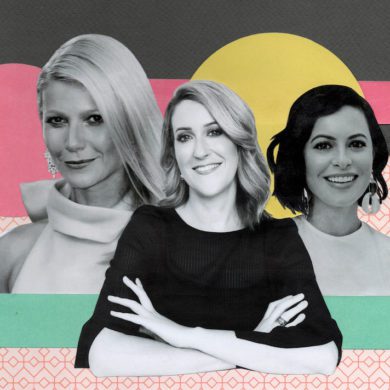Over the weekend, three world leaders found their personal lives making headlines – once again.
In the US, President Trump faced a sexual assault allegation, this time by the writer E Jean Carroll, who accused him of raping her in a Bergdorf’s changing room in the 1990s. In a searing essay for New York magazine, Carroll wrote that Trump unzipped his pants “and, forcing his fingers around my private area, thrusts his penis halfway — or completely, I’m not certain — inside”.
Across the Atlantic, Boris Johnson, the foppish politician on the verge of clinching the British Prime Ministership, was also having a bad day. Or rather a bad night. On Saturday evening, police were called to the apartment he shares wth his partner after neighbours overheard shouting. Charges were not laid, and Johnson has refused to comment.
Many miles away, in New Zealand, a third political leader – Prime Minister Jacinda Ardern – also hit the headlines: for proudly sharing a photograph of the birthday cake she’d baked for her daughter.
Two of these incidents were covered extensively in the media. (There were – wait for it – four stories about the rabbit-shaped birthday cake on New Zealand’s biggest news site stuff.co.nz on Saturday). But the reaction to the most serious story, the alleged sexual assault, was muted.
In the US, The New York Times ran Carroll’s allegations, not on the front page where one might expect an allegation of sexual assault against a sitting President to appear, but buried in the books section. It has subsequently issued an apology for its “overly cautious coverage”, but its half-hearted approach was fairly typical. The story was also absent from the front pages of not only The Wall Street Journal, but The Los Angeles Times and The Chicago Tribune, too.
Let’s just pause to consider that for a moment. The President of the United States was accused of rape by a well-known journalist – and it didn’t even make the front page of The New York Times.
Let’s just pause to consider this for a moment. The President of the United States was accused of rape by a well-known journalist – and it didn’t even make the front page of The New York Times.
Sure, there were mitigating factors – it was a big news weekend; there were legal complexities – but neither of these issues was insurmountable. The truth was that editors doubted their readers would care.
You can see their point. Carroll is the 16th woman to accuse Trump of sexual misconduct, and, so far, not a single allegation has stuck. Outrage has bloomed, and then… nothing. Not a consequence in sight. Trump’s power and popularity seems unassailable. As far as many news editors were concerned, it was a case of another day, another Trump scandal.
How have we got to this point? Where the leader of the free world is dogged by accusations of the most serious kind, while the man widely tipped to be the next British Prime Minister was embroiled in a domestic dispute so noisy that police were called? And, worse still, no one seems to care?
(And as an aside, what exactly does a political leader have to do these days to be booted out of government if accusations of sexual assault won’t do the trick?)
“Trump has rewritten the rules of acceptable behaviour,” says Mark Kenny, a Senior Fellow at The Australian National University (ANU), who points out that events that seemed scandalous when Trump was elected in 2016, now occur with such regularity that we’ve become inured to them.
Dr Norman Abjorensen of the ANU Crawford School of Public Policy, explains the ascension of Johnson and Trump another way; he says the Trumps of the world have risen to power because huge swathes of society have grown disillusioned with “the political ruling class”. The way they see it, not only have politicians failed to deliver prosperity, but they have systemically dismantled the traditional hierarchies – and pushed a socially liberal agenda – that has left many feeling disenfranchised and threatened.
Enter ‘celebrity politicians’ like Trump and Johnson, for whom the key criteria are larger-than-life, made-for-reality-TV personalities and economic skills; moral leadership and a spotless private life, less so.
“The fact that he’s badly behaved, that he’s not party to the normal rules and is prepared to shake thing up is a positive,” says Professor David Smith of Sydney University’s United States Studies Centre. So what if his moral compass points due south? It’s all part of the appeal.
Another reason Trump’s presidency seems unshaken is his strong Christian base, says Smith. More than 80 per cent of evangelical Christians voted for Trump, and in these circles, says Smith, it is accepted that God uses “imperfect vessels” to carry out His work. In other words, the end result justifies the means, no matter how misogynistic.
It’s also possible that others are prepared to set aside any moral reservations, in exchange for a leader who’ll protect their religious freedoms. (If this seems like a stretch, then consider the enormous outpouring of support for Israel Folau from Australian Christians this week.)
The fact that he’s badly behaved, that he’s not party to the normal rules and is prepared to shake thing up is a positive.
And then of course there are the legions of supporters – Christian or not – who simply don’t believe a word of the allegations. “Trump has been really successful at telling his supporters there are people out there to get him,” says Smith. “That there are big conspiracies orchestrated by what he calls ‘The Deep State’.”
For this group, the possibility that their leader has sexually assaulted a string of women is less believable than the existence of a shadowy network of saboteurs who spend their days dreaming up endless fake rape scandals. Even though they don’t seem to make much impact. Even though Trump himself has boasted of grabbing women by the pussy. Even though the prospect of a powerful man – or, ahem, a US President – making questionable sexual decisions isn’t exactly a farfetched scenario (or even a distant memory).
The problem, of course, is that for every fresh allegation that slides off Trump as though he’s made of Teflon, the already surreal suggestion that a sitting President might also be a serial sexual predator grows even more unbelieavble.
And, worryingly, with men like Trump in power, the prospect of gender equality – not to mention justice for sexual assault victims – grows fainter by the day.
So where does this leave those of us who would ideally prefer our leaders not to operate under a cloud of allegations of misconduct?
Short of moving en masse to New Zealand and comforting ourselves with a slice of birthday cake, there’s little we can do except to keep agitating. Keep talking. Keep sharing stories like that of E Jean Carroll (or this one!) until the Teflon wears off, the Trumps are trumped and the refrain that ‘boys will be boys’ is buried for good.














No Comments